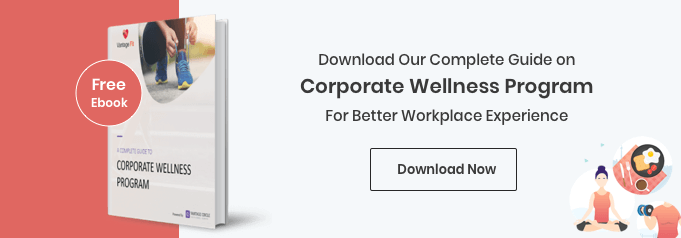6 Must-Haves in Your Financial Wellness Program

In the current days of uncertainty, being financially stable is crucial for any unforeseen events. As such, financial wellness has become a critical requirement for every worker to maintain. In such a scenario, corporate financial wellness programs can have a massive impact on workers' financial health.
Responding to this requirement, many corporations have come up with various financial wellness plans to accommodate this necessity. But, mere program design is not enough. These programs must be thorough. It means looking into all the critical areas to address in the plans.
As such, one must prepare a list of must-haves in the program beforehand. It means examining and ticking certain elementary boxes and a few must-haves that all programs must include.
Recommended Read:10 Best Financial Wellness Apps in 2024
Today, let's look at a few of these must-haves that you must incorporate into your financial program.
5 Must-Haves in Your Financial Wellness Program
1. Employee Assistance Programs
Employee Assistance Programs are imperative for a complete financial wellness program. These programs help workers be aware of their financial stability and how to attain it. It is mainly done by counseling the workforce on how to be financially sound.
These programs also help workers get through difficult times. They do it by offering financial assistance and mental counseling on how to overcome challenges. It is more significant in today's time, where COVID-19 has reign terror all around the world.
In times like these, finance is always a trouble, which affects mental calmness as well. By offering help in this aspect, you can also help maintain workers' mental health in these challenging times.
2. Financial Planning Course
Finance is a vast and equally vital matter to lead a happy life. In this case, one must have the proper knowledge to navigate correctly through financial decisions. Here, the use of various financial planning course is immense. As such, your economic program must have a few financial planning courses.
An adequate plan would be to offer these courses quarterly. Here, employee engagement is vital, especially for millennials. Young workers are mostly shabby in maintaining finances compared to older workers. Therefore, you must ensure the active participation of your younger workforce.
These courses help your workers with things as follows:
- How to set financial goals in life, both short-term and long-term
- Ways to attain one's financial goals
- Financial planning strategies
- Retirement Planning and personal finance strategies
- Investment Plan
- Tax reduction strategies, etc
3. Debt Management Course
Debt is one of the terrifying hurdles standing in the way of financial wellness. Additionally, the stress of this debt can also negatively affect employee productivity and employee health. Therefore, the need to properly manage debt becomes imperative for your workers.
Thankfully, many courses educate employees to manage debt efficiently. Furthermore, these courses also render essential financial wellness tips to workers. Like the financial planning course, you can also offer the debt management course quarterly every year.
Things your workers will learn on this financial education course are precious. These courses help one with Debt Management Plan (DMP), strategize the payment, set priorities, etc.
4. Emergency Funds
One of the provisions that your financial program must have is a work-sponsored emergency fund. It is crucial to cover your workers against any unforeseen emergency financial situations. To accommodate this, you can also design an employee savings plan. These are contributions from employee's salary pre-tax.
Saving plans like this are extremely helpful in emergencies. Furthermore, you can also set aside a portion of your revenue and built up such a fund. You can grant these funds to workers in need of financial assistance for various reasons. These can be accidents, pregnancy, family troubles, etc.
5. Counseling
Employee Counseling is critical to help your workers become financially fit. These counseling sessions help workers understand how to attain financial health and maintain the same. It is also safe to not do this counseling by oneself but hire professional help from external sources.
6. Follow-Up
Finally, like in every business decision, you must follow up on your financial wellness program. Here, you must ascertain the success rate of your program and financial benefits. You can do this through employee wellness surveys about the "before and after" financial wellness situations of workers.
After this survey, you must take the steps necessary to better your program.
These were a few of the must-haves in your financial wellness program. Including these in your program will positively impact the success rate of your plan. This will ultimately result in a better, financially secured workforce.
To wrap things up, let's elaborate a bit more on our last point about following up; how do you assess your financial program.
How To Assess The Success of Your Financial Wellness Program
1. Financial Tests
These are straightforward tests to assess the financial knowledge of your workers. It is beneficial to evaluate your workers' education programs' performance like financial planning and debt management course. You can organize these tests half-yearly every year.
2. Stress Management Tests
Difficulty in managing finances can also translate to one being stressful most of the time. As such, you can organize a sudden survey on employee stress management assessment. Here, the point will be to assess one's financial stress levels.
3. Retirement Readiness Checks
Retirement planning is a crucial aspect of one person's financial wellness. It assures that even after employment, one has enough resources to look after oneself and the family. This ultimately becomes a state of being financially independent, not having to depend on anyone for money.
By asking about this retirement aspect to your workers, you can figure out how many of your workers are close to a state of ultimate financial independence and security.
Following up on these points will educate you on how your program performed with your workforce.
Also read: 6 Steps To Financial Wellness During Covid-19
Conclusion
Designing mere financial wellness programs is not enough. These programs must be impactful, for which there are some crucial provisions that you must include and follow. We hope with this piece, you got a fair bit of idea of what these provisions are in financial wellness plans.






